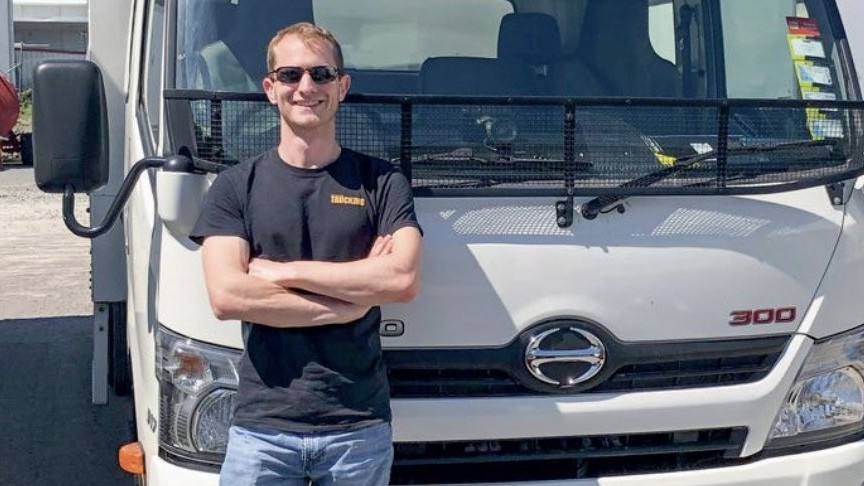
I read a news story last week by Newsroom’s Marc Daalder, whose reports, I’ll be honest, often irritate me. It started with his reporting on Covid-19 during the pandemic. But with that thankfully behind us, he’s gone back to his old beat covering, among other things, climate change and energy – two more topics with the potential to split opinion.
However, we don’t learn, grow, or form well-rounded opinions by living in an echo chamber of like-mindedness – a position it’s all too easy to take in a world driven by algorithms and virtue-signalling. That difference of opinion is one of the reasons I still read his work… if the headline grabs me.
Take, for example, “Crackdown on diesel pollution could save billions”, followed by “A heavy diesel truck costs society $1 in health and productivity losses due to air pollution for every kilometre it drives.” Well, consider me grabbed.
Not at all what I expected, the article discusses the report Estimating the impacts of introducing Euro 6/VI vehicle emission standards for New Zealand: final report, prepared by Emission Impossible for the Ministry of Transport and released on 4 July 2022.
A quick search of the Beehive and Ministry of Transport websites reveals nothing on this report. Somehow – by design? – we’d all missed it. Now that it’s out, though, it backs up what we and those with the requisite technical knowledge have been consistent about – if the powers that be want to make real, immediate gains in reducing tailpipe emissions, we need to keep up with the latest standards.
New Zealand mandates a Euro-5 standard for all new vehicles, and it would be foolish to eschew the benefits of implementing Euro-6 in favour of chasing a ‘green utopia’ driven by hydrogen and electricity. Yes, these are great technologies with the potential for real-world, zero-tailpipe-emission benefits. But full-scale implementation of the technology and supporting infrastructure is years, if not decades, away – and doing nothing to enhance the status quo as we progress to that future shows where this government’s priorities lie.
The Ministry of Transport states the average age of the country’s heavy-truck fleet is 15 years. That means any new truck sold right now is likely to still be on the road as we approach the 2040s. Even if the very last heavy internal combustion vehicle is sold in 2040 – for argument’s sake – that means they’ll still be on the road into the 2060s. Fossil fuels will be around for a while yet.
Now, let’s consider the report, which found that the social benefits in health and productivity are “between 35 and 48 times higher than the estimated potential cost of the policy”. To put that in dollar terms, implementation of Euro-6 in 2024 will realise benefits (air pollution, healthcare and productivity) of $8.3 billion at a cost (additional cost of manufacturing) of $236 million. If only implemented in 2030, that benefit falls to just over $1 billion and the cost to $22 million. In the meantime, we continue to suffer the ill-effects (and costs) of a poorer, outdated standard.
Daalder’s article states that fewer than one in five new vehicles entering the fleet meets the Euro-6 standard, making up just 3% of the overall fleet currently. I searched for this stat in the report and couldn’t find it, but I have no reason to doubt his research. Considering Europe mandated Euro-6 requirements for new heavy-duty vehicles in 2013 – a decade ago! – imagine how far along its vehicle decarbonisation journey New Zealand would be if we’d implemented the standard even five years ago. Europe aims to implement Euro-7 by the second half of this decade…
In the light-vehicle sphere, the current mandated tailpipe emissions standard lags too, and the standard for used imports (heavy and light) is even lower at Euro 4. Yes, in the light-vehicle fleet, strides have been made since the implementation of the Clean Car Standard with impressive numbers of hybrid and electric vehicles being sold.
And that’s all the fodder the government, ministries and agencies need to virtue-signal how ‘well’ we’re doing in our decarbonisation journey. If we want meaningful, well-rounded, continual progress in lowering vehicle emissions, the difference of opinion presented by this report mustn’t get drowned out in that echo chamber.
Take care out there,
Gavin Myers
Editor
Read more
Pouring concrete
0 Comments5 Minutes
What’s going on?
1 Comment4 Minutes




